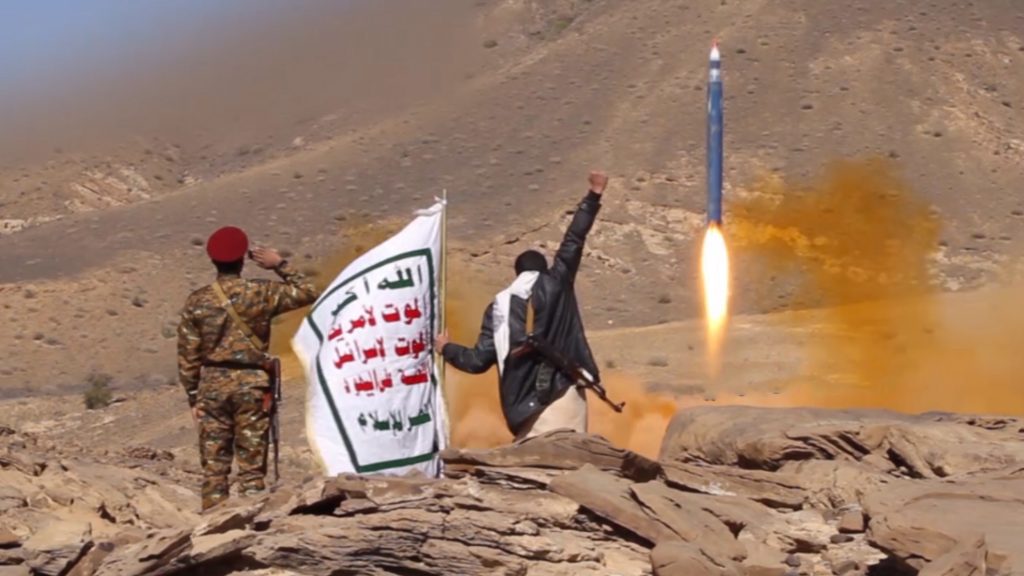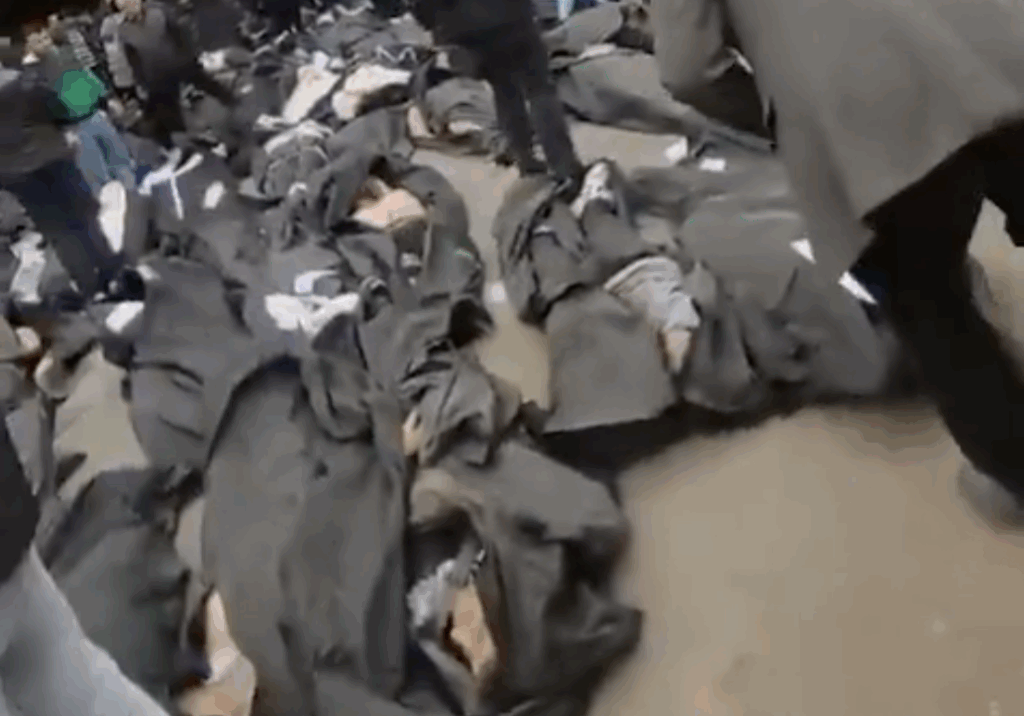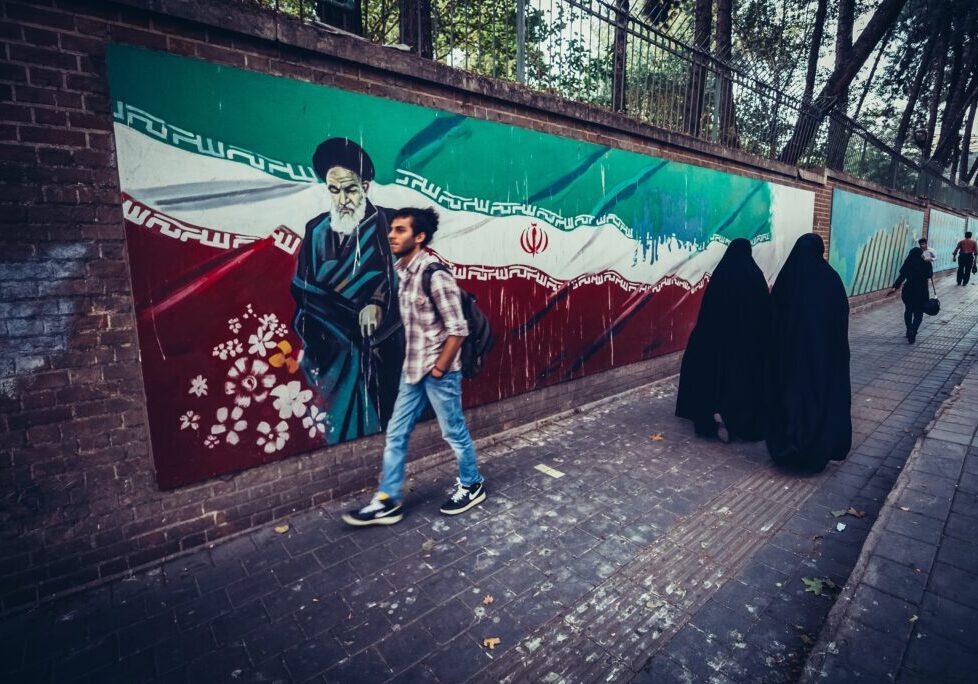Australia/Israel Review
Chess Match
May 30, 2019 | Seth J. Frantzman

In the first two weeks of May, US-Iran tensions appeared to be careening toward war.
In an escalating series of warnings, the US asserted that an attack by Iran would be met with unrelenting force. Iran eventually responded with its usual bluster about being prepared for a full confrontation with Washington. But on the ground, the Middle East looks more like a chessboard, with Iran and its allies and proxies facing off against American allies. This state of affairs was brought into sharp relief when Iranian-backed Houthi rebels launched a drone attack on Saudi Arabia and a rocket thought to have been launched by Iranian proxies fell near the US embassy in Baghdad.
US media have tended to focus on the role of National Security Adviser John Bolton in crafting the administration’s policy – and whether America would actually go to war with Iran.
Iranian media have also sought to decipher exactly what the Trump Administration is up to. According to Iran’s Tasnim News, the powerful Islamic Revolutionary Guard Corps (IRGC) commander Hossein Salami told a closed session of Parliament that the US was involved in a “psychological war” with Iran, predicting the US didn’t have enough forces to actually attack Iran yet.
In the complex game of wits being played between the Trump administration and the Iranian regime, it appears that the US temporarily checked Iran’s usual behaviour.
Iran prefers bluster in rhetoric, combined with a careful strategy of extending its influence in Iraq, Syria, Lebanon, and Yemen, knowing that any real battle with US forces will result in Iranian defeat. Teheran can’t risk massive retaliation against its allies or the regime at home for fear that it will lead to instability and the destruction of all it has carefully built up in the last years.
Iran is suffering from the effects of recent nationwide floods and from shortages due to sanctions, so it can’t afford a total war, and its allies in Iraq and Lebanon are in sensitive positions of power. In the past, Iran benefited from its opaque system of alliances and its ability to threaten western powers and attack US forces with proxies, even seizing US sailors, without fear of reprisal. It learned in the past that the US preferred diplomacy, but the current Administration appears to have put Teheran on notice.
The question is what can be learned from the escalating tensions. If Iran thinks Washington isn’t serious, or if it senses that domestic opposition to Washington’s sabre-rattling is building, Iran may call America’s bluff. But if Iran thinks that Trump’s team really will retaliate, it will tread carefully in all the areas of the Middle East where US allies and Iran’s proxies rub up against one another.
To understand the chessboard, we must look at the Middle East the way Iran does. Since the 1980s, Iran’s Islamic revolution has been increasing its influence in the region. This brought Iran into vicious conflict with Iraq in the 1980s, and for a while Iran saw few major geopolitical successes.
However, the weakening of the Lebanese state and the overthrow of Iraqi dictator Saddam Hussein in 2003 created opportunities for Iran to exploit local militia allies and gain power. It did this in Lebanon through Hezbollah, an armed terrorist organisation that has seats in the Lebanese parliament. It also did this in Iraq through a plethora of militias, many of whose leaders had served alongside the IRGC in the 1980s. Today those Shi’ite militias are called the Popular Mobilisation Forces and they are an official paramilitary force of the Iraqi Government. They have threatened the US, and US intelligence allegedly showed them positioning rockets near US bases earlier this month.
In Yemen, meanwhile, Iran has worked closely with the Houthi rebels, who are fighting the Saudi Arabia-led coalition, which includes the United Arab Emirates and the government of Yemen. (That coalition is controversial; in April, the US Congress attempted to withdraw support for the Yemen war.) The Houthis have fired Iranian-designed ballistic missiles at Saudi Arabia and used Iranian-made drones. Iran is also active in Syria, not only in support of the Syrian regime’s war against the now mostly defeated rebels, but also using bases to threaten Israel.
The US sees Iran as inseparable from its cobweb of allied militia groups and proxies, many of which are supported by the IRGC. The US designated the IRGC a terrorist organisation in April and repeatedly has warned Iran that any attack by it, or its proxies, will be met with a response.
Iran now wants to assure its own people that war isn’t likely through media stories about how the Trump Administration isn’t serious. This is in contrast to the usual Teheran bluster and threats, even historic harassment of ships in the Persian Gulf and harassment of US forces in Iraq.
Iran’s sudden quiet could, of course, be the calm before the storm, but it is more likely a reflection of the regime’s sudden confusion about US policy. This is a good thing.
Iran needs to be kept guessing about US intentions. It needs to tell its proxies to stop threatening US forces in Iraq, as the Defence Department says they have done as recently as March. The US gained the upper hand in its recent escalation against Iran by playing Iran’s game of bluster and support for allies on the ground. If Washington wants to continue to keep Iran in check, it needs to keep up the pressure.
Dr. Seth J. Frantzman is the executive director of the Middle East Center for Reporting and Analysis and a writing fellow at Middle East Forum. © National Review (www.nationalreview.com), reprinted by permission, all rights reserved.
Tags: Gulf states, Iran, Middle East, Saudi Arabia






